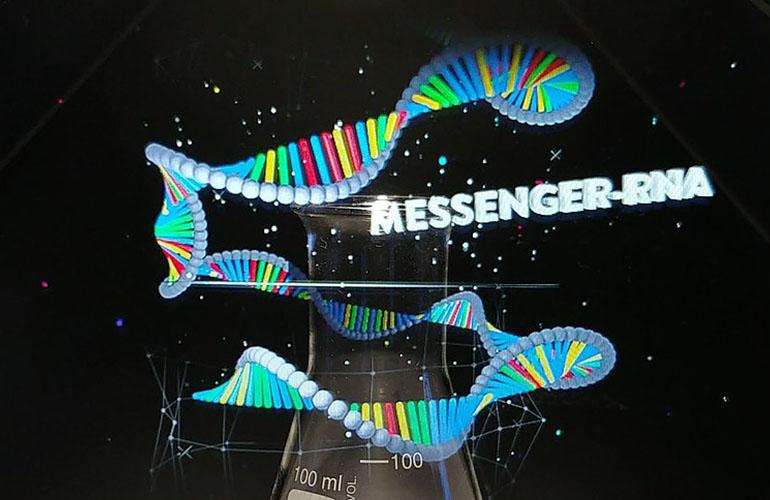mRNA, easy to customise, is the next frontier for personalised medicine (The Hindu)

- 19 Dec 2023
Why is it in the News?
The therapeutic use of messenger RNA (mRNA) has fueled great hope to combat a wide range of incurable diseases.
What is mRNA?
- mRNA, or messenger RNA, represents a type of nucleic acid responsible for conveying genetic instructions.
- Within cells, mRNA serves as a messenger, transporting codes from the DNA located in the nucleus to the sites of protein synthesis in the cytoplasm, where ribosomes are situated.
- The genetic information in DNA undergoes transcription, or copying, into mRNA before proteins can be synthesized.
- Each mRNA molecule encodes information for a specific protein, with every sequence of three nitrogen-containing bases dictating the inclusion of a particular amino acid in the protein.
Advantages of mRNA-Based Medicine:
- Scalability: The production of mRNA in the laboratory is highly scalable, as the method for generating mRNA remains consistent across different types.
- This contrasts with traditional drugs, where each compound has distinct chemistry, requiring varied manufacturing methods.
- Patient-Centric: mRNA, being naturally degradable by cells when no longer needed, allows for flexible dosage adjustments to cater to changing patient requirements.
- Broad Therapeutic Potential: mRNA-based medicine holds promise for addressing a wide range of diseases rooted in cellular errors, such as the production of incorrect proteins, mutant protein versions, or insufficient normal protein levels.
- By delivering corrected mRNA to affected cells, scientists aim to facilitate the production of the correct proteins.
Prospects of mRNA-Based Medicine:
- Diverse Treatment Applications: The future of mRNA-based medicine extends to addressing conditions like heart disease, neurodegenerative diseases, and bone loss, among others.
- Enhanced Wound Healing: mRNA drugs exhibit the potential to stimulate the formation of new blood vessels.
- This capability is particularly beneficial for diabetic patients with compromised blood circulation, reducing the risk of amputation.
- Treatment for Rare Conditions: mRNA-based medicine holds promise in treating rare disorders like propionic acidaemia, characterized by insufficient levels of liver proteins crucial for preventing the accumulation of toxic by-products in the body, especially in children.
Way Forward
- The capacity to tailor and manufacture mRNA easily enhances its prospects as a potent and personalized therapy, offering the potential for reduced side effects and widespread applicability.
- Despite these advancements, mRNA-based therapeutics are in the early stages of development, facing challenges such as the short lifespan of mRNA in cells and limited protein production duration.
- Addressing these hurdles is crucial to optimizing mRNA effectiveness and minimizing the quantity of mRNA needed.
